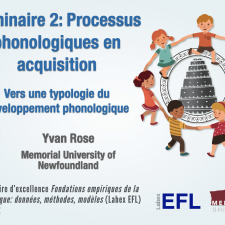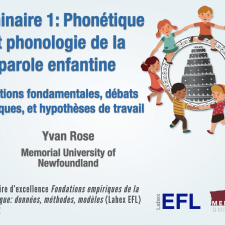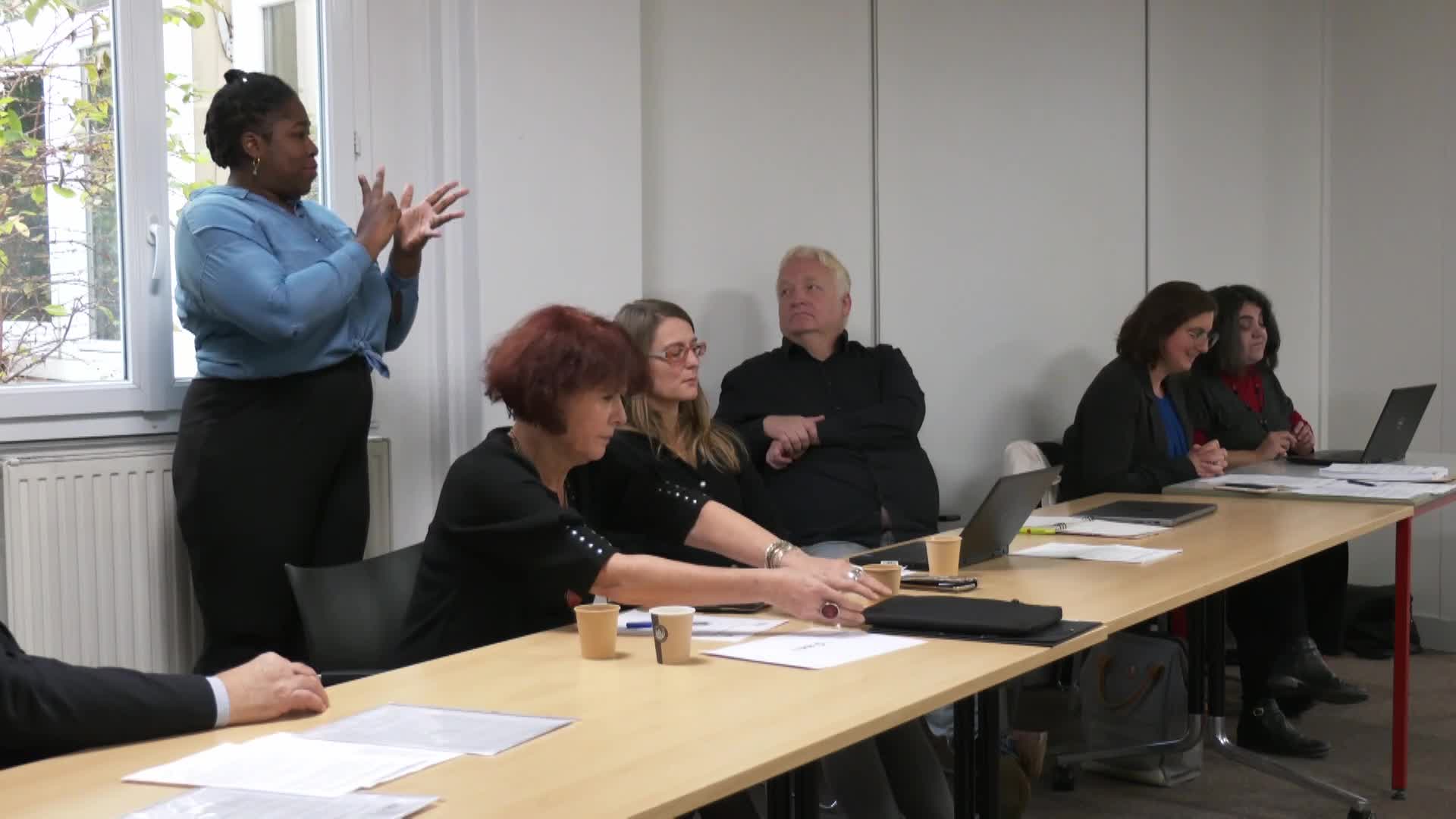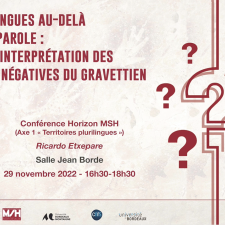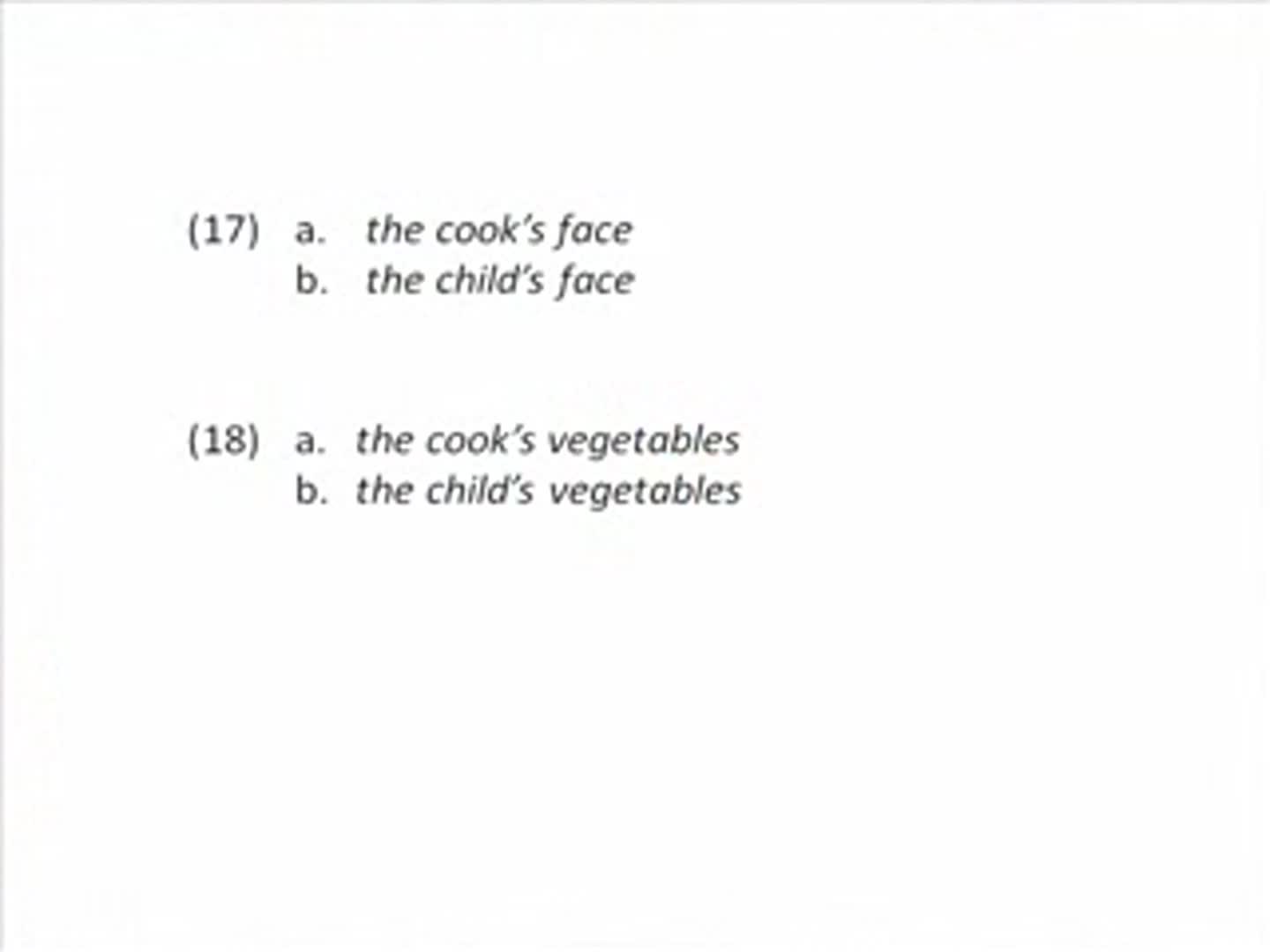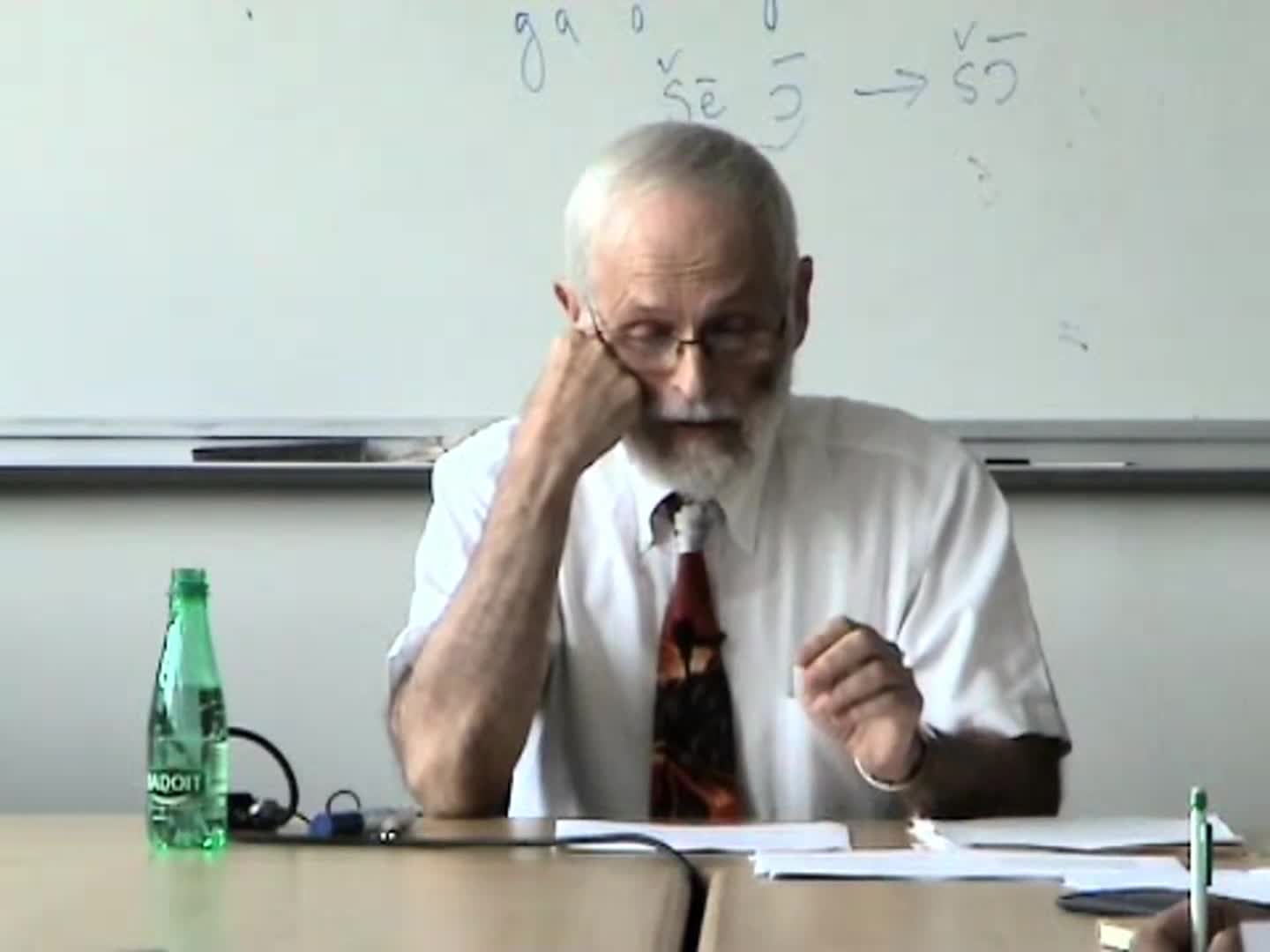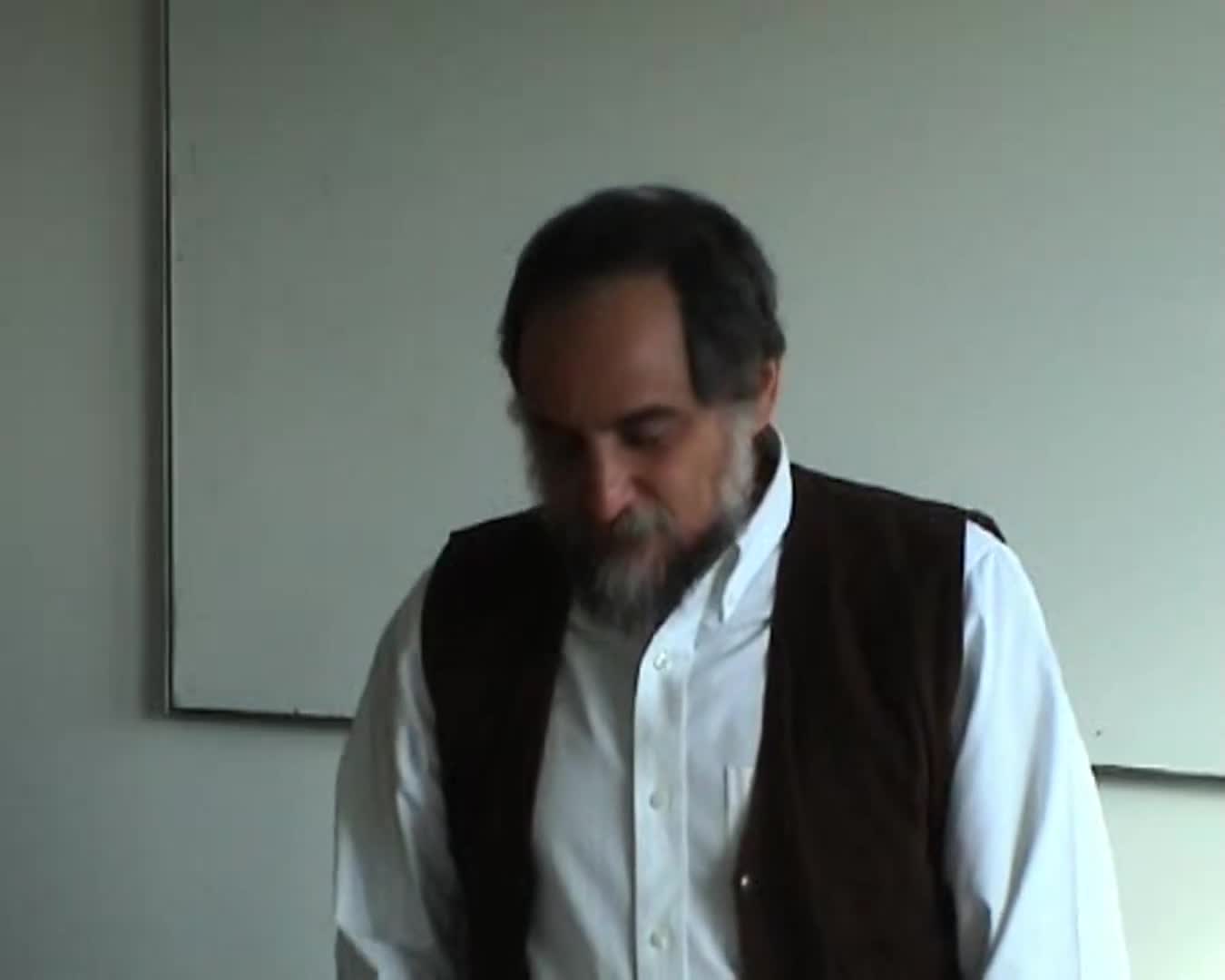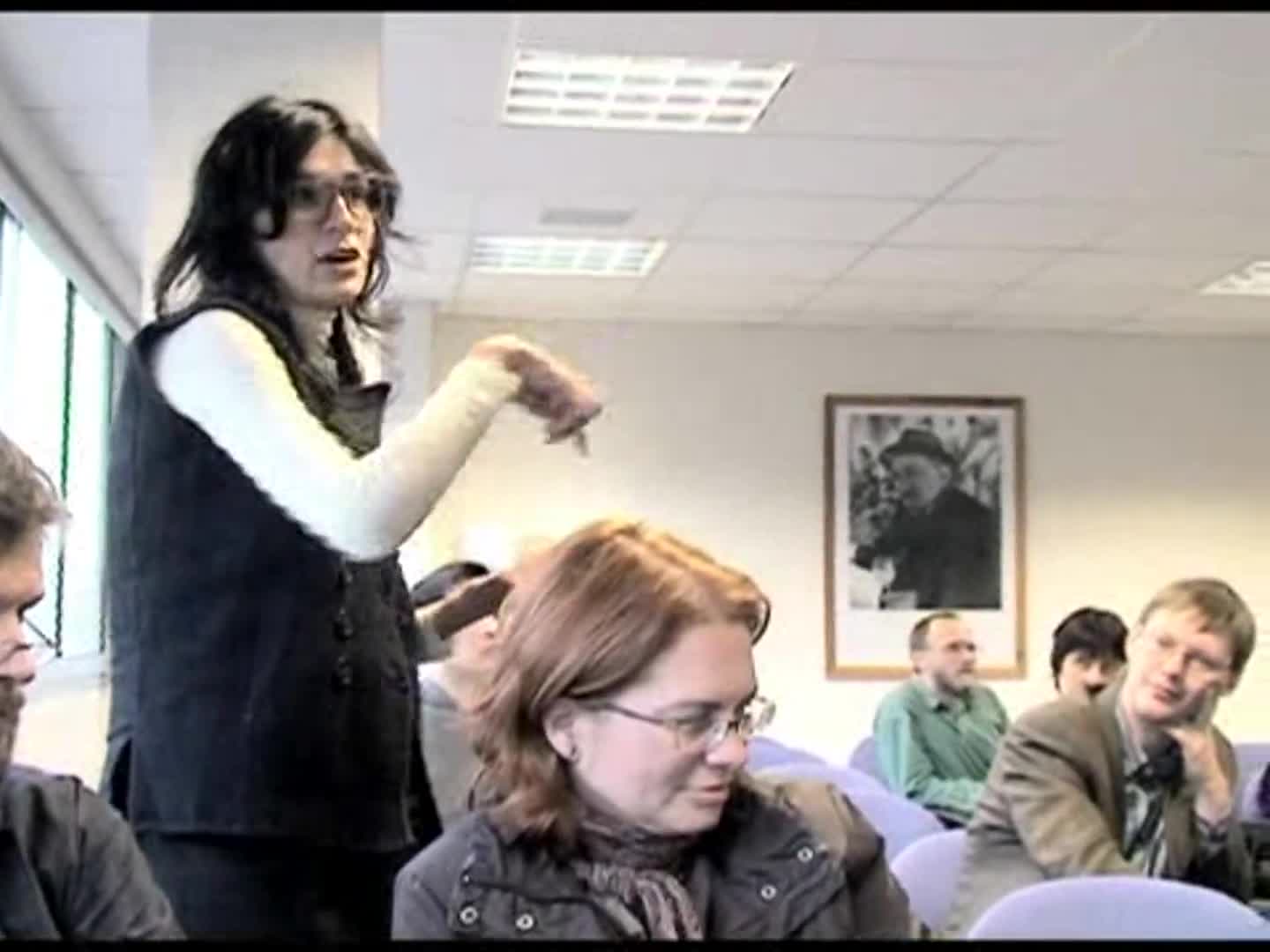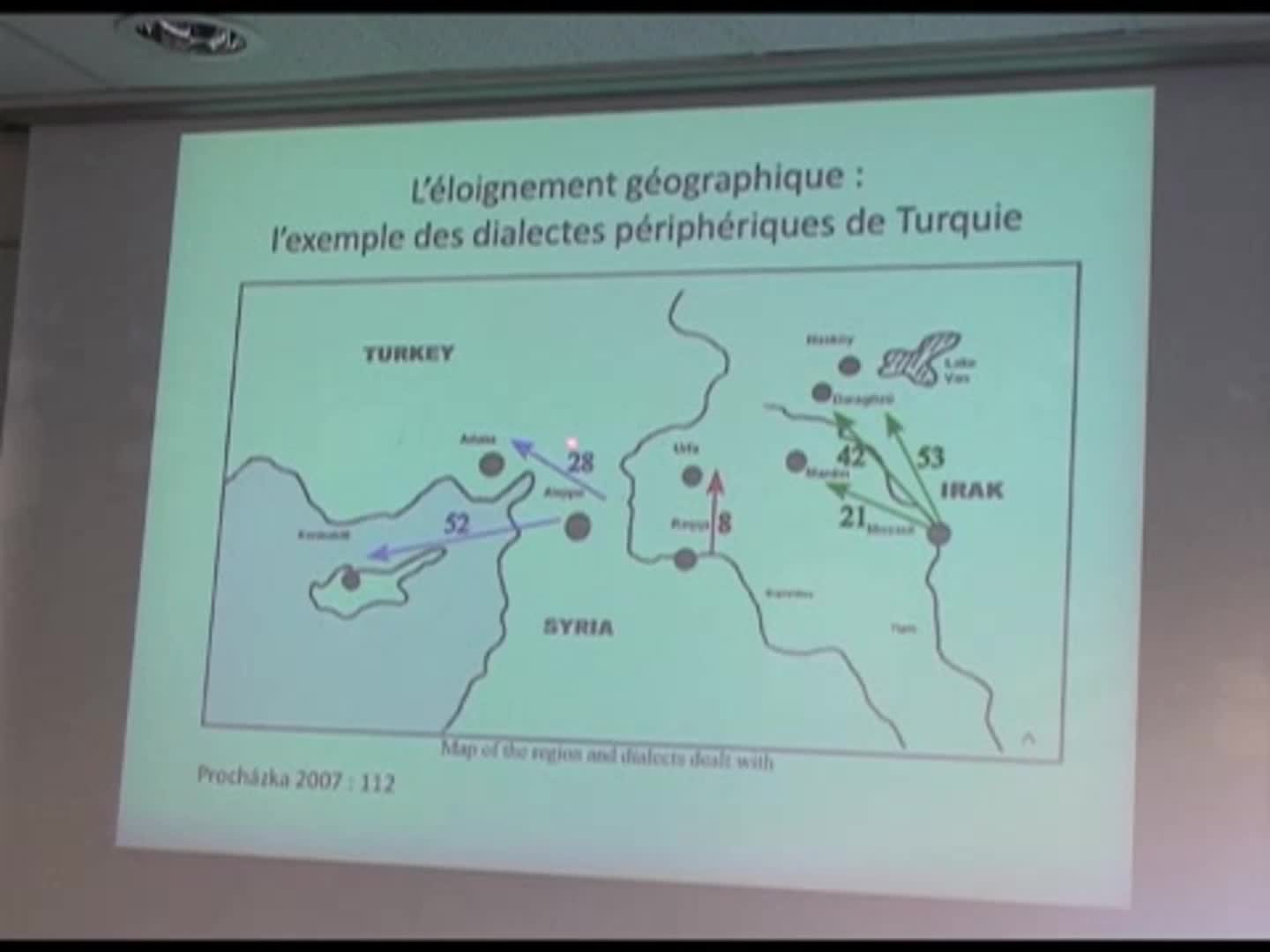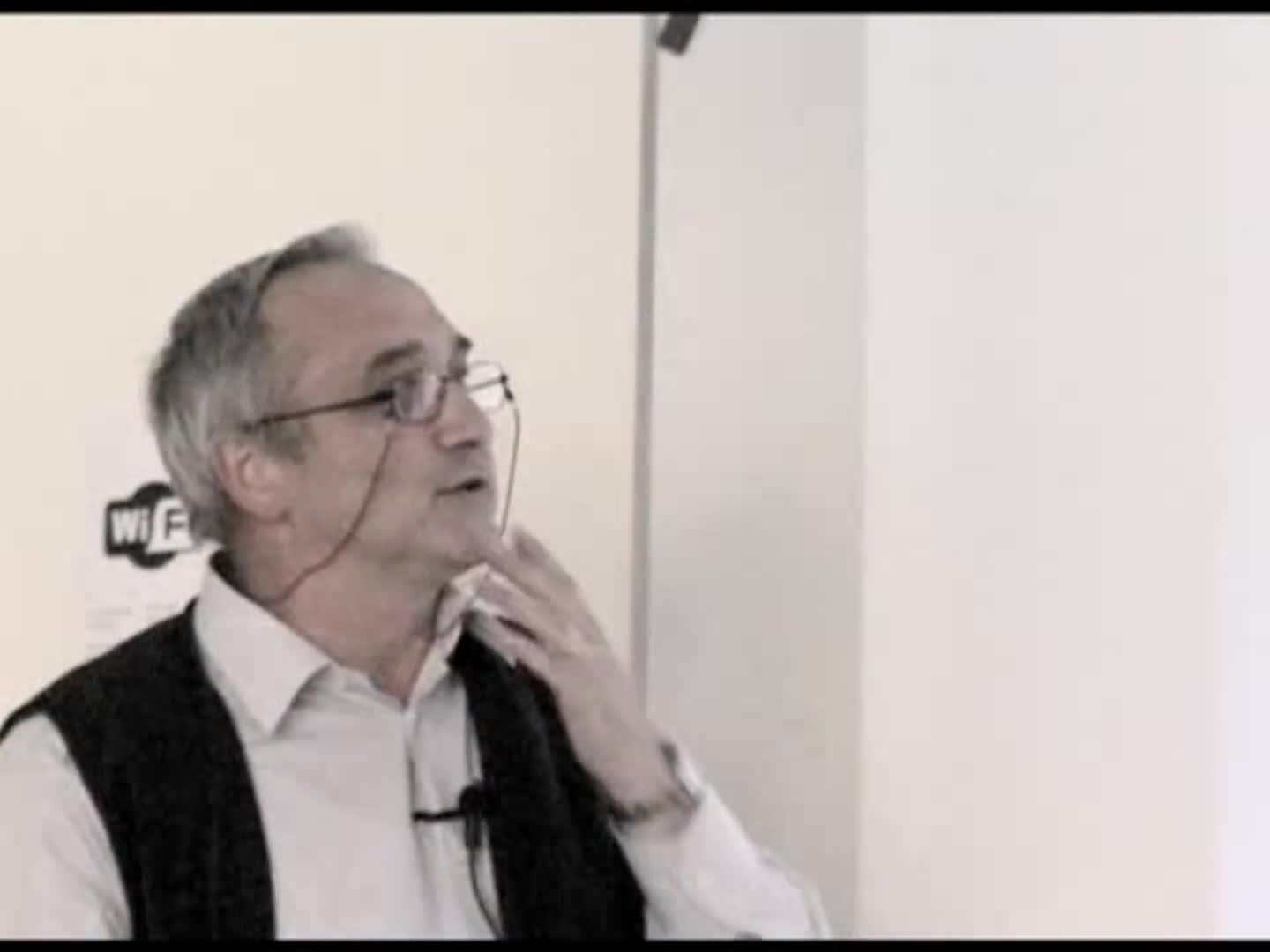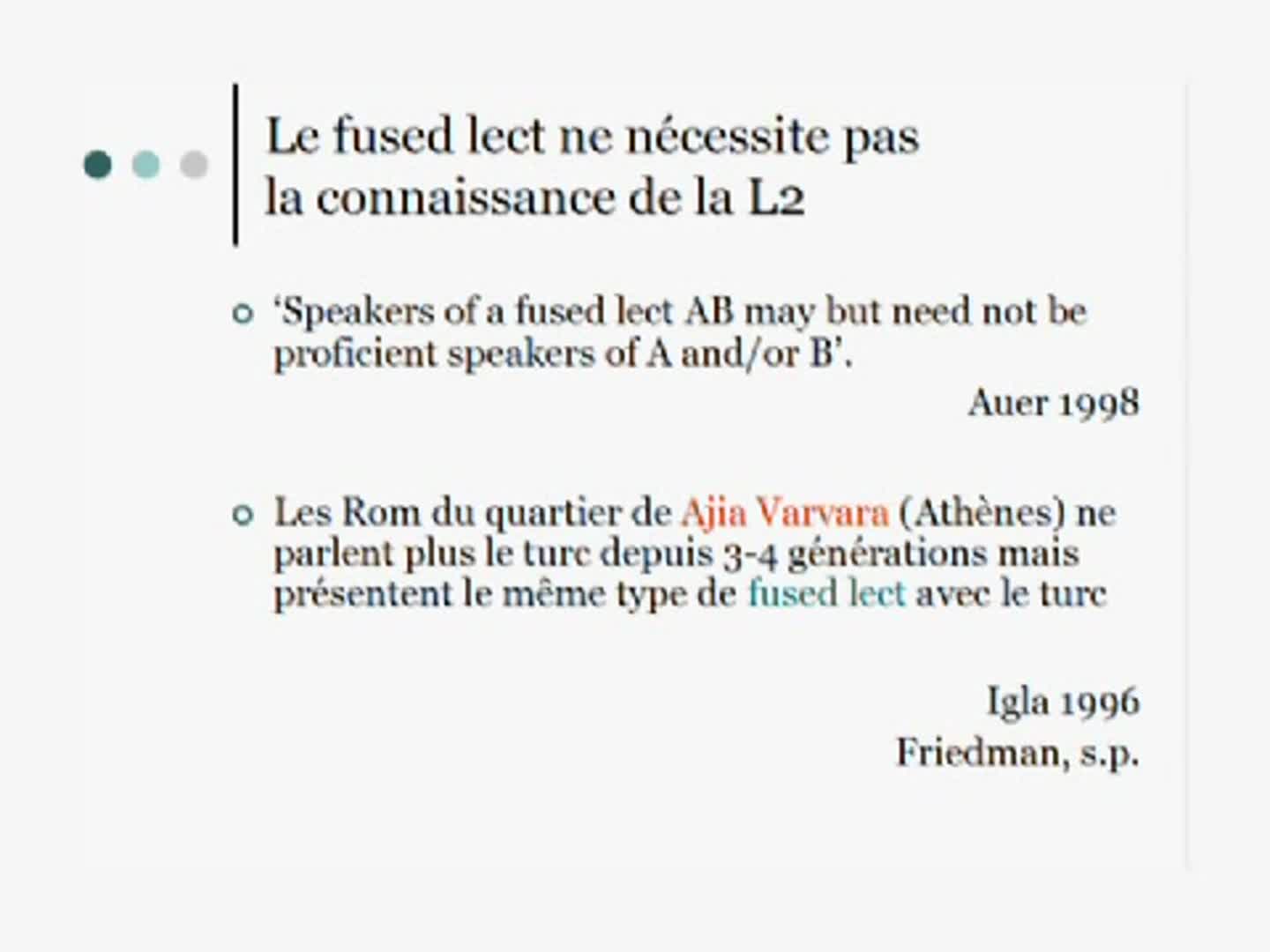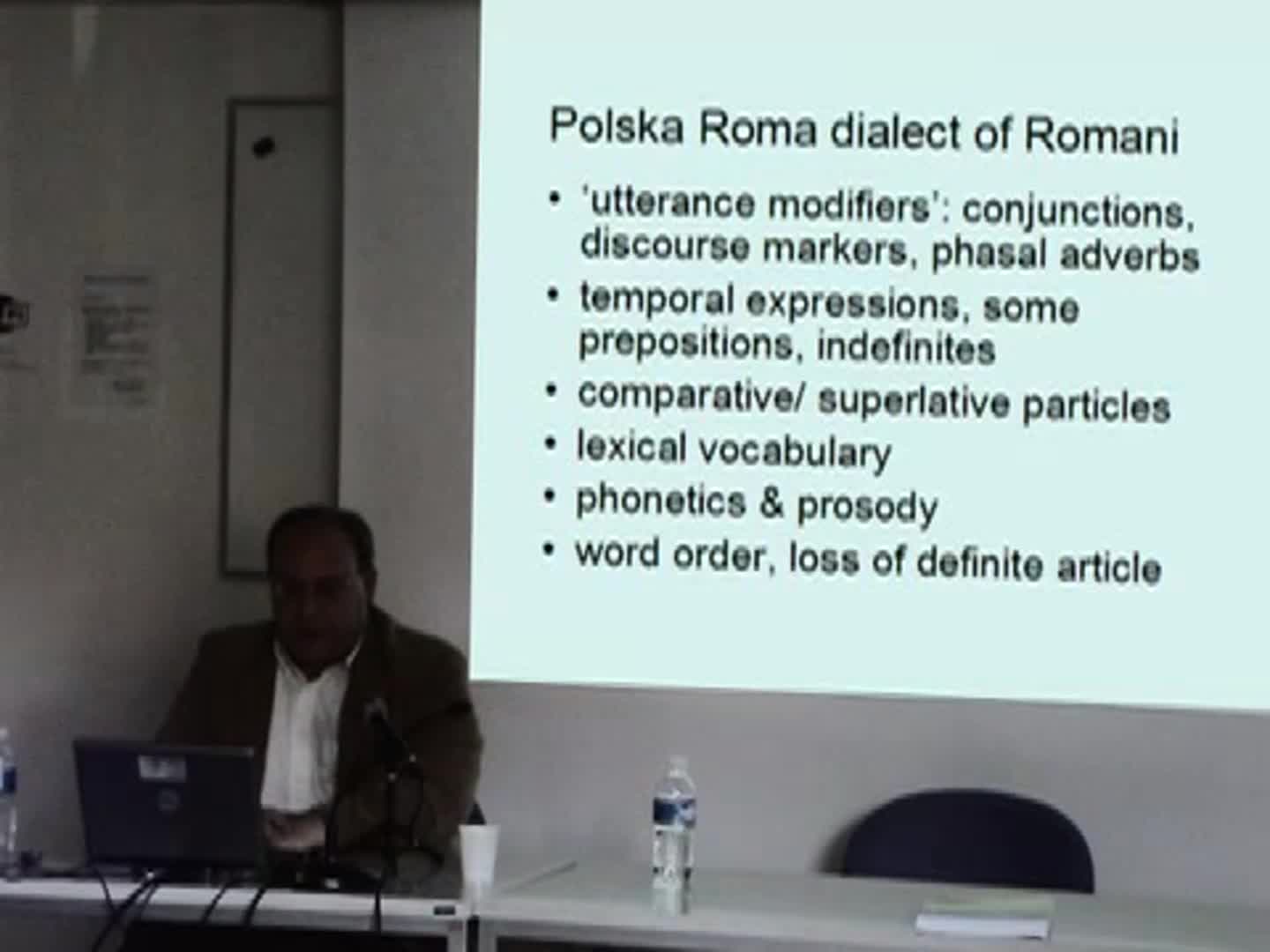Notice
An embodied and situated perspective on speech and language- Labex EFL - Lecture 2: The forgotten articulator: How respiration constrains linguistic structure and affects speech at a local and global level (Susanne Fuchs 2019)
- document 1 document 2 document 3
- niveau 1 niveau 2 niveau 3
Descriptif
In this lecture, I will talk about
respiration, a biological rhythm which is flexible and adaptable and crucially
involved in speech production, perception and face-to-face interactions. Based
on different experiments, I will discuss the interplay between respiration and
speech planning in read and spontaneous speech and the respiratory coordination
between interlocutors in dialogue. Finally, I will argue that respiration does
not only deliver the expiratory airstream for speech in long temporal windows
(interpausal units), but can also be involved in the production of prominent
syllables.
Thème
Dans la même collection
-
Yvan Rose II - Survol des faits d’acquisition phonétique et phonologique et implications théoriques
ROSE Yvan
Ce deuxième séminaire débutera par un survol des données de corpus en acquisition de la phonologie, avec une emphase sur les productions linguistiques d’apprenants francophones (p.ex. France; Québec)
-
Yvan Rose I - Phonétique et phonologie de la parole enfantine: questions fondamentales, débats théo…
ROSE Yvan
Ce premier séminaire jettera les bases du cours progressif, qui s’articulera autour de questions théoriques et empiriques concernent la nature des représentations phonologiques, leur origine, ainsi
-
An embodied and situated perspective on speech and language - Labex EFL - Lecture 3 and 4: Speech a…
In this lecture, I will provide evidence from multimodal experiments in which we investigated the effect of rhythmic motions with the legs or hands on respiratory parameters, and the temporal
-
An embodied and situated perspective on speech and language- Labex EFL - Lecture 1: Changes and cha…
FUCHS Susanne
Over the last century, our understanding of variability in the speech signal has undergone a variety of changes. Once regarded as noise in the signal, it has now become a major topic of investigation
-
Embodying Speech - Lecture 4 - Emergence in Embodied Speech : Sound Change, Ontogeny and Phylogeny …
GICK Bryan
While any theory of speech behavior must ultimately incorporate the human body, modeling bodies has not been a central program in language research. Thinking about the body in quite tangible terms was
-
Embodying Speech - Lecture 3 - Coarticulation, Superposition, Representation (Bryan Gick 2019)
GICK Bryan
While any theory of speech behavior must ultimately incorporate the human body, modeling bodies has not been a central program in language research. Thinking about the body in quite tangible terms was
-
Embodying Speech - Lecture 2 - The Parts of Speech II : Quantality and Speech Movements (Bryan Gick…
GICK Bryan
While any theory of speech behavior must ultimately incorporate the human body, modeling bodies has not been a central program in language research. Thinking about the body in quite tangible terms was
-
Embodying Speech - Lecture 1 - The Parts of Speech I : Dimensionality and Modularization (Bryan Gic…
GICK Bryan
While any theory of speech behavior must ultimately incorporate the human body, modeling bodies has not been a central program in language research. Thinking about the body in quite tangible terms was
-
Listening to Speech - 2 (John Kingston 2012)
KINGSTON John
Listening to Speech - 2 (John Kingston 2012)
-
Listening to Speech - 3 (John Kingston 2012)
KINGSTON John
Listening to Speech - 3 (John Kingston 2012)
-
-
Listening to Speech - 4 (John Kingston 2012)
KINGSTON John
Listening to Speech - 4 (John Kingston 2012)
Avec les mêmes intervenants et intervenantes
-
An embodied and situated perspective on speech and language- Labex EFL - Lecture 1: Changes and cha…
FUCHS Susanne
Over the last century, our understanding of variability in the speech signal has undergone a variety of changes. Once regarded as noise in the signal, it has now become a major topic of investigation
Sur le même thème
-
Quels ouvrages écrivent les locuteurs du croissant ?
PISU Rafaëllo
Étudier les parlers locaux ne se limite pas à analyser les langues en tant que système linguistique. La sociolinguistique a pour postulat de base qu'on ne peut s'intéresser à une langue sans prendre
-
Le croissant dans l’atlas sonore des langues régionales de France
BOULA DE MAREüIL Philippe
Depuis quelques années, dans le laboratoire LISN du CNRS, on développe un atlas sonore des langues régionales de France qui prend la forme d'un site web présentant une carte interactive de France,
-
Soutenance de thèse : Robert GAVRILESCU
GAVRILESCU Robert
GARCIA Brigitte
SALLANDRE Marie-Anne
NYST Victoria
RATHMANN Christian
BOGDAN Gelu
SOARE Elena
Soutenance de thèse : Robert GAVRILESCU Description linguistique de la Langue des Signes Roumaine. Analyse de la variation linguistique et sociolinguistique dans deux régions roumaines
-
Des langues au-delà de la parole : une réinterprétation des mains négatives du gravettien
ETXEPARE Ricardo
Des langues au-delà de la parole : une réinterprétation des mains négatives du gravettien
-
Conférence du professeur Frank Lichtenberk | Apparition et disparition des classificateurs possessi…
LICHTENBERK Frank
Conférence de Frank Lichtenberk (Université d'Auckland, Nouvelle-Zélande) | Apparition et disparition des classificateurs possessifs en austronésien / The rise and demise of possessive classifiers in
-
conférence du Professeur James A. Matisoff | Les initiales laryngales primaires et secondaires en T…
MATISOFF James A.
Conférence du Professeur James A. Matisoff (Université de Californie, Berkeley) | Les initiales laryngales primaires et secondaires en Tibéto-birman | 06 mai 2009 | CNRS - Langues et Civilisations à
-
conférence du Professeur Brian Joseph | On the Need for History in Doing Balkan Linguistics
JOSEPH Brian D.
Conférence du Professeur Brian Joseph (Ohio State University) | On the Need for History in Doing Balkan Linguistics | 02 octobre 2008 | CNRS - Langues et Civilisations à Tradition Orale (LACITO)
-
ATELIER DÉSERTS. Y A-T-IL DES CORRÉLATIONS ENTRE L'ÉCOSYSTÈME ET LE CHANGEMENT LINGUISTIQUE ? | Ta…
NICOLAï Robert
Journée d'étude Déserts. Y a-t-il des corrélations entre l'écosystème et le changement linguistique ? | 19 octobre 2009 | CNRS - Langues et Civilisations à Tradition Orale (LACITO)
-
ATELIER DÉSERTS. Y A-T-IL DES CORRÉLATIONS ENTRE L'ÉCOSYSTÈME ET LE CHANGEMENT LINGUISTIQUE ? | De …
TAINE-CHEIKH Catherine
Journée d'étude Déserts. Y a-t-il des corrélations entre l'écosystème et le changement linguistique ? | 19 octobre 2009 | CNRS - Langues et Civilisations à Tradition Orale (LACITO)
-
ATELIER DÉSERTS. Y A-T-IL DES CORRÉLATIONS ENTRE L'ÉCOSYSTÈME ET LE CHANGEMENT LINGUISTIQUE ? | Aux…
TOSCO Mauro
Journée d'étude Déserts. Y a-t-il des corrélations entre l'écosystème et le changement linguistique ? | 19 octobre 2009 | CNRS - Langues et Civilisations à Tradition Orale (LACITO)
-
ATELIER ÉCOLOGIE DU CHANGEMENT LINGUISTIQUE | Contact de langues et écologie : le romani et le poma…
ADAMOU Evangelia
Journée d'étude Écologie du changement linguistique | 23 octobre 2008 | CNRS - Langues et Civilisations à Tradition Orale (LACITO)
-
ATELIER ÉCOLOGIE DU CHANGEMENT LINGUISTIQUE | Cultural hybridity, contact, and contrast: The cases …
MATRAS Yaron
Journée d'étude Écologie du changement linguistique | 23 octobre 2008 | CNRS - Langues et Civilisations à Tradition Orale (LACITO)


